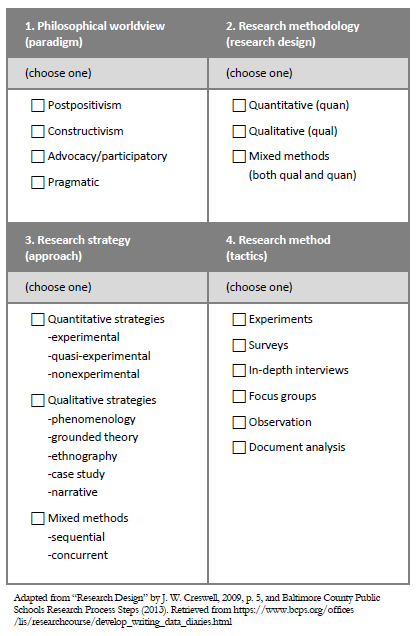So far, I haven’t seen a book that addresses the plight of the dissertator who attends an online program or a for-profit university (or both, as I did). The nontraditional graduate experience is not the same as the traditional face-to-face graduate experience.
I described my experience of being a nontraditional graduate student in this blog post:
Some dissertators at my alma mater hired editors and coaches to help them complete their Ph.D. journey. While I was still struggling by myself in my dark dismal corner, I would read notes my fellow learners had left in the discussion folders. They effusively praised Dr. So-and-So for helping them get their proposals approved, even when the ink on Dr. So-and-So’s diploma was barely dry. I had mixed feelings about the idea of getting outside help.
For some of us, the prospect of getting help comes as a huge relief. For others, getting help seems like the worst form of giving up. Where are you on that continuum? And why do you believe what you believe? Now is the time to examine your own beliefs about getting help. Complete the following sentences:
Getting editing or coaching help is ____________________________________________
When I think of getting help, I feel ____________________________________________
People who get help are ___________________________________________________
Editors are ____________________________________________________________
People who hire editors think _______________________________________________
Dissertation coaches are ___________________________________________________
If other people found out I hired an editor or a coach, they would think that I _______________
There are no wrong answers. This isn’t a test, people. If you answered without overthinking it, maybe you now have some insight into how you perceive the question of whether to hire an editor and/or a coach.
Early on, I chose not to hire an editor. That means no one reviewed my work except my Chair and Committee member before it was submitted to the Graduate School. All the errors (and there are many) are therefore mine and mine alone. My rationale was that I wanted to be as sure as I could be that the work accurately represented my writing and research skills. I wanted to earn my place among the big dogs (or at least the mid-sized poodles) fair and square. Especially in light of the fact that I attended a for-profit institution, I felt the integrity of the entire process was at stake.
What it’s like to be a nontraditional learner at a for-profit university
Now that I’m on the editor’s side of the desk, I continue to have some misgivings about the use of editors. Sometimes I believe hiring an editor is the right choice, for example, when a dissertator’s first language is not English. If the dissertator’s ideas are doctoral-worthy but his or her grammar skills are lacking, I support the use of an editor, as long as the editor is able to accurately decipher the dissertator’s statements and translate them into correct academic English. If the statements are impossible to translate, then you can’t expect the editor to know if the writer’s ideas are doctoral-worthy or not.
On the other hand, if a dissertator’s ideas lack cohesion and logic, if the research problem and purpose are not clearly identified, if the research methodology and methods are unstated, not clearly stated, or inappropriate, then I think using an editor can camouflage the fact that the dissertator may not ready yet to advance to the dissertation level. You may ask, Am I nuts? I suppose if everyone agreed with me, I’d have a lot less editing work. But from an ethical point of view, I am expressing a concern: Some of the proposals I edit need a lot more than just copy editing. However, people don’t pay me to tell them that I think they aren’t ready for doctoral-level work; they pay me to edit their papers and make them look like they are ready for doctoral-level work. What’s a poor editor to do?

This situation reminds me of the hundreds of résumés I read for career-college students who could barely form complete sentences. My editing made them look like communications superstars on paper. I cringe when I think of how many of my former students probably closed their interviews by cheerily asking, “So, when are you going to make your guyses hiring decision?” Sigh.
I usually get editing jobs through an editing agency, so I see only a small part of each dissertator’s journey. I usually don’t know how much feedback the dissertator has received previously from his or her Chair or Committee. Sometimes, though, I see drafts with the Chair’s comments. Occasionally, the comments are extensive, thoughtful, explicit, and helpful. Yay. More often, the comments are tentative, sparse, terse, vague, and not helpful. In those cases, I feel compelled to offer what assistance I can to point some of these floundering dissertators toward shore.
Thus, when I edit a paper, I am performing the work of the Chair, without having the advantage of interaction with the dissertator. The most difficult decision people face is choosing methodology and methods. Multiple possibilities confound the dissertator’s overworked brain. I can almost hear the wheels spinning: Should I choose a qualitative design? Should I do a survey? Oh wait, maybe it is a case study?
What do you want from a dissertation coach?
Without knowing the dissertator’s objectives and disposition, I can only offer suggestions and point out options. However, as an editor, I can’t offer ongoing support after the dissertator chooses a survey method over an interview method. I hope my book might fill in some of the gaps for dissertators who struggle with unhelpful Chairs and Committees.
Back to the question, Should you get help or go it alone? The answer, as usual, is—it depends. Only you can decide. The best suggestion I can offer you is, Dissertator, know thyself. That means making a clear-eyed assessment of your skills and aptitudes. Take the Doctoral Readiness Survey. In particular, get some feedback on your writing skills from someone who already has some writing skills.
No worries. Either path you choose—whether you get help or go it alone—will teach you some interesting things about life and your place in it.
If you like to learn by reading, looking at diagrams, and hearing about other dissertators’ experiences, maybe my book can help.








